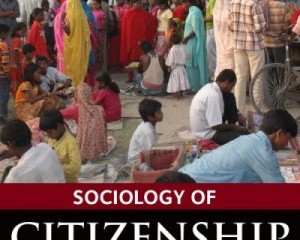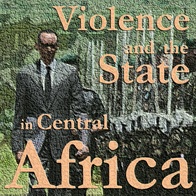
Plurinational citizenship in the making
In 2009, after a long and contentious process of national dialogue that led to the approval of a new Constitution, the Republic of Bolivia officially changed its name to Plurinational State of Bolivia.
Over the last decade, the idea of plurinationalism has influenced public debates across the Andean region. In 2008, the Ecuadorian president Rafael Correa defined plurinationalism as the coexistence of several different nationalities within a larger state where different peoples, cultures and worldviews exist and are recognized. Yet, Bolivia was the first country to go all the way, not only including this idea in the Constitution (as Ecuador did) but actually changing its official name. This is not just a formality. The new Bolivia is engaging in a process of in-depth institutional reforms, challenging mainstream narratives and political structures and reinventing a model of the state and creating notions of citizenship better suited to highly diverse ethnic and cultural landscapes.
In Latin America, the effort to challenge assimilationist and universalist models of citizenship (both republican and corporatist) took shape during the 1990s, when multicultural politics emerged and culture and identity became legitimate political claims. However, multiculturalism was not an easy partner for the neoliberal consensus, and claims for collective (rather than individual) rights and for territorial autonomy raise what Deborah Yashar (1999) calls a “postliberal challenge”. While concepts such as multiculturalism and pluricultural citizenship were a key part of the neoliberal agenda, it was with the Leftist turn in the following decade that the more radical idea of a plurinational state took shape. In Bolivia, the election of Evo Morales as President in 2005 and the rise of the Movement Towards Socialism (MAS) gave political meaning to plurinationalism as an alternative model of state and citizenship, which was meant to overcome the neoliberal multicultural framework for diversity management.

A citizen’s income and wealth fund for the UK: Lessons from Alaska
The idea of a ‘citizen’s income’ has made a real splash on the UK political agenda. The new year started with the Green party announcing a universal, non-means tested weekly payment of £72 to every British adult as its flagship economic policy, only to drop it this week from the party election manifesto after the programme’s costing failed to withstand rigorous scrutiny. Despite this step back, the citizen’s income idea may still feature in the election debate, given calls late last year by key Liberal Democrats for a universal basic income to become official party policy. And while the Greens have distanced themselves from the policy for the duration of the election, Green MP Caroline Lucas has identified the scheme as a long-term …

A preamble for a written constitution in the UK
Recently the Political and Constitutional Reform Committee ran an open public competition to find who can write the best Preamble – or introductory statement – for a modern Written Constitution for the UK. We are delighted to announce that Richard Elliot, a DPhil student at Jesus College, Oxford, was selected as winner in the public category. His Preamble reads, United, we stand in celebration of the diverse voices that make up the great chorus of our nation. Confident in our individuality, and steadfast in our shared values and common purpose, we—the citizens of the United Kingdom of Great Britain and Northern Ireland—have come together in the spirit of self-determination in order to establish the principles of our law and governance. By this …

The politics of a written constitution for Britain
The first issue concerning a written constitution for Britain is: Where is the demand coming from? Contemporary organised demand for constitutional reform traces back to the late 1970s, yet even before then, isolated intellectuals – ‘a voice crying in the wilderness’ – had tried to make an issue out of a written constitution for Britain that would include a Bill of Rights. The term ‘norm entrepreneur’ is sometimes used in politics and international relations to refer to pioneers who, dissatisfied with the status quo, take action to change it at their own initiative. They may make an impression on the world even if their personal cause ultimately fails. A norm entrepreneur is typically an individual, but may be a collective actor …

The Sociology of Citizenship
Political theorists, sociologists and anthropologists are increasingly open to the idea that citizenship goes beyond the legal status conferred by states upon individuals in a national political community. The contributors to this series will focus on the concrete, empirical ways in which people make meaning of citizenship and the manner in which they forge and imagine membership in the political community. Contributors will draw on their on-going research in different parts of the world, including South Asia, the Middle East, Eastern Europe, Africa and Latin America.

A sociology of citizenship: preliminary reflections
Social scientists most commonly view citizenship as a juridical status conferred by states upon individuals in a national community. TH Marshall’s (1950) formulation most famously helped analysts to unpack its political, civil and social dimensions.
Marshall’s formulation has since been held up to critical scrutiny for the manner in which it foregrounded citizenship as a regime of rights. In her critique of Marshall’s account, Margaret Somners (1993: 589) reminds us that citizenship refers to an ensemble of “institutionally-embedded social practices”. The idea of citizenship as practice and process has since been emphasized by many a political theorist (Beetham, 1999; Heater, 1999; Mouffe, 1996). Such perspectives have made possible further sociological investigations into citizenship. What does citizenship actually mean to the people upon whom it is conferred as a legal status? With what meanings do people who claim it, either through petition or through struggle, imbue it? The viewpoint that citizenship is an ensemble of practices enables scholars to investigate the concrete ways in which states fashion citizens (Ong, 1999) as well as the ways in which people forge their collective selves as citizens (Lazar and Nuitjen, 2013).
In examining the latter, scholars remain divided about the centrality of the state.

Why the UK needs improved caretaker conventions before the May 2015 general election
In 2010, the UK’s underspecified caretaker conventions caused the “Squatter in Downing Street” controversy, when Gordon Brown remained in office after Labour’s election defeat, pending the completion of the coalition negotiations. Pollsters predict another hung parliament in May this year and potentially protracted coalition negotiations. Yet, the country still lacks adequate rules to govern caretaker situations, which gives rise to considerable risks. Caretaker periods and their attendant challenges are universal to parliamentary democracies. The government’s mandate to exercise its executive powers stems from its ability to command the confidence of parliament. However, there are points in every parliament’s lifecycle when no government can lay claim to such support—between parliamentary dissolution and a general election; after a general election and before …

What can Rwanda’s dam building tell us about its politics?
Rwanda has just completed its first Large Dam since the genocide (traditionally defined as one over 15 metres high). The Nyabarongo Dam will become the country’s primary power station and increase Rwanda’s power generation by a third. It is arguably the first singularly big development project to be completed by president Kagame’s government, and is set to be the first of many with a further four Large Dams in the immediate pipeline and the Bugasera Airport under construction. They form part of a wider effort to build large ‘modern’ infrastructures across the country, from road improvements and increased energy production to skyscrapers in the capital Kigali.
So what does this drive towards big projects entail for Rwanda? Can it tell us something about the way in which the country is run and the values of its government? This article explores aspects of Rwanda’s flagship dam project that indicate the government’s wider approach to development politics.









